The views expressed in our content reflect individual perspectives and do not represent the authoritative views of the Baha'i Faith.
Abdu’l-Baha, the eldest son of Baha’u’llah – the prophet and founder of the Baha’i Faith – led the world’s Baha’is for 29 years, his station absolutely unique in the annals of the world’s religions.
Although not a prophet himself, Abdu’l-Baha was known as “the Master” and “the Mystery of God,” as explained by Shoghi Effendi, the Guardian of the Baha’i Faith:
Upon Him [Abdu’l-Baha] that loving and unerring Father [Baha’u’llah] had chosen to confer the unique title of “Sirru’llah” (the Mystery of God), a designation so appropriate to One Who, though essentially human and holding a station radically and fundamentally different from that occupied by Baha’u’llah and His Forerunner [the Bab], could still claim to be the perfect Exemplar of His Faith, to be endowed with super-human knowledge, and to be regarded as the stainless mirror reflecting His light. – God Passes By.
He is, above and beyond these appellations, the “Mystery of God” – an expression by which Baha’u’llah Himself has chosen to designate Him, and which, while it does not by any means justify us to assign to Him the station of Prophethood, indicates how in the person of Abdu’l-Baha the incompatible characteristics of a human nature and superhuman knowledge and perfection have been blended and are completely harmonized. – The World Order of Baha’u’llah.
Baha’is understand that Abdu’l-Baha evinced some superhuman qualities. Without much formal schooling, he not only led a global Faith community but became a world-renowned speaker, author, and recognized authority on a wide variety of abstruse and difficult subjects. Beyond that, the extent of his erudition astounded those who interacted with him – it seemed to many who met the Mystery of God that he could readily access any fact, figure, or field of knowledge.
Not surprisingly, some people had the audacity to try to put Abdu’l-Baha’s “superhuman knowledge” to the test.
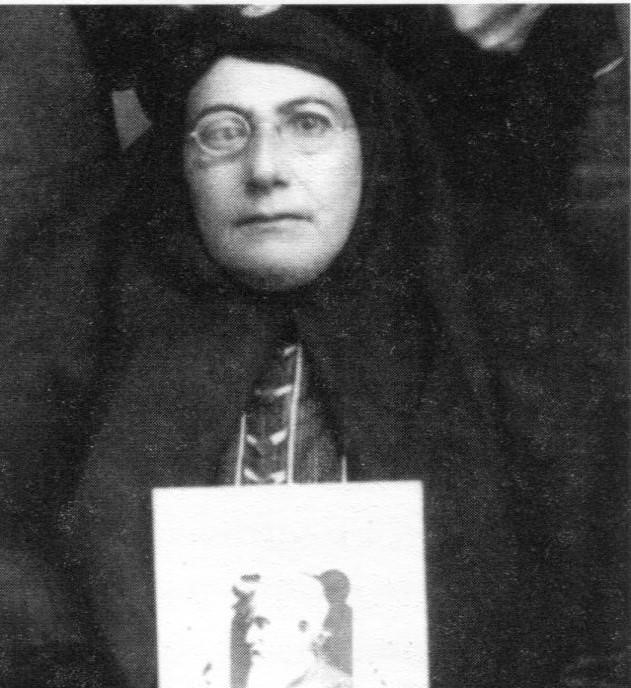
Baha’i histories tell of an artist by the name of Mirza Muhammad-Sadiq Naqqash, also known as Mirza Sadiq, the husband of Fatimih Bagum, to whom Abdu’l-Baha gave the title of Faʼizih Khanum, meaning “she who has attained.”
Faʼizih Khanum became a Baha’i some time after her marriage, but her husband vehemently opposed his wife’s religion for many years. The eminent Baha’i teacher Haji Mirza Haydar-Ali gave us the following glimpse into the hostility that Mirza Sadiq felt towards the Baha’i Faith in those days:
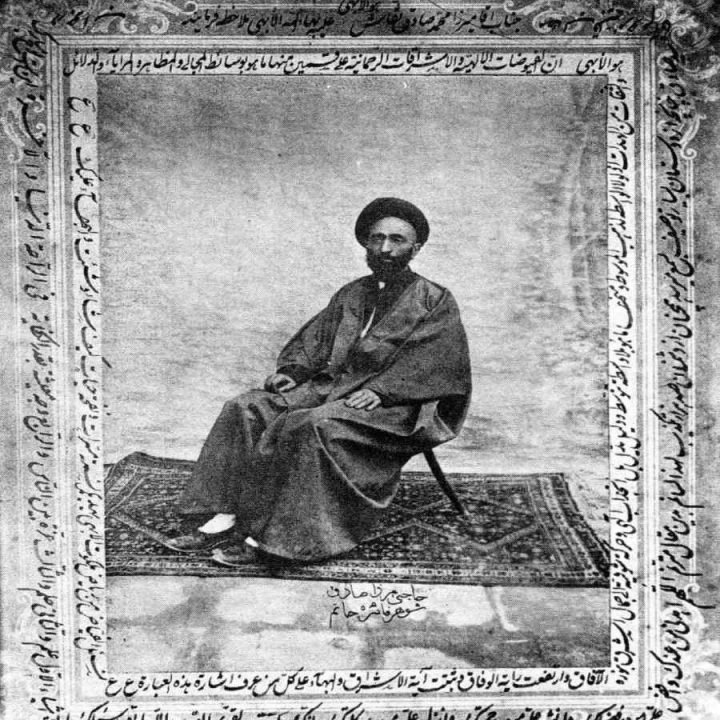
The husband of Faʼizih Khanum was an obstinate and stubborn person who used to deny the truth which was presented to him … I spoke to him about the [Baha’i] Faith for two hours. I found him to be angry and during this period the signs of malice and opposition were apparent from every limb of his body. He offered me tea in a special cup because he considered me to be an infidel and, therefore, a defiled person. In the course of my conversation with him, I quoted a verse of the Qurʼan, and a tradition of Islam in support of my arguments. He angrily retorted that such a verse was not in the Qurʼan and that I was uttering slander to the Prophet of Islam by attributing such a verse to the Holy Book. Of course I could have asked for a copy of the Book and shown him the verse in question but I knew in so doing he would feel defeated in argument and this would increase his animosity towards the Faith. Therefore in a loving spirit I said, “I hope that God through His bounty may guide you to the truth.” I further suggested to him that he should try to find the verse in question in the Qurʼan, as well as the tradition that I had quoted for him … I then requested permission to leave but he said that I could stay the night in his home because all he would have to do would be to wash and purify the dishes I ate from and wash the bedding after I left. I thanked him for the hospitality and left … The following day, Mirza Sadiq searched the Qurʼan, found the verse in question and became very ashamed and sorry for the way he had treated me. He then decided to seriously investigate the Cause but he continued to reject the proofs which the teachers of the Faith presented to him until he wrote to Abdu’l-Baha. – Haydar-Ali, Bihjatu’s-Sudur, pp. 441–43. This translation taken from Adib Taherzadeh’s Child of the Covenant, p. 349.
Regarding that letter Mirza Sadiq sent to Abdu’l-Baha, Adib Taherzadeh wrote:
In his letter to Abdu’l-Baha, Mirza Sadiq asked certain questions, but instead of sending the letter to Abdu’l-Baha, he kept it in a safe and locked it. He then placed a blank piece of paper in an envelope and asked his wife to send it to Abdu’l-Baha. He assured his wife that if he received answers to his questions, he would acknowledge the truth of the Cause. Upon receiving the envelope Abdu’l-Baha immediately revealed a Tablet addressed to Mirza Sadiq in which He answered all his questions. When he received the Tablet, Mirza Sadiq was exhilarated beyond words that Abdu’l-Baha had responded to his questions; he went to his wife, prostrated himself at her feet and begged forgiveness for all the opposition that he had shown towards her. – Ibid., p. 349.
The original Arabic text of the Tablet that Abdu’l-Baha wrote in response to the uncommunicated questions of Mirza Sadiq has been published for some time, but unavailable in any English translation until now. The following is my provisional rendering of the Tablet:
He is the All-Glorious!
The outpourings of God’s grace and the splendors of His compassion are of two kinds. There is the kind that is transmitted through the Intermediaries of Manifestations, Mirrors, Proofs, and trusted Guides, in Whose absence there would be nothing to transmit in the first place. There is also the kind that is transmitted without an agent to intermediate and a guide to lead the way; it is conveyed, rather, through divine attraction and a movement that yearneth toward a beauty through whose light the world is illumined, the standard of concord is hoisted, and the token of radiance is demonstrated. May the glory of God rest on all who have grasped the meaning intended by these words.
We beseech the All-Bounteous to bestow upon thee, from the gardens of the Most Glorious Kingdom, a breeze that will gladden thee and a fragrance that will vivify thee as He willeth and thou thyself dost wish. The glory of God be upon thee. – Makatib-i-Hadrat-i-Abdu’l-Baha, Volume 6, p. 5, provisionally translated by the author (thanks to Ruwa Pokorny for her helpful comments on this translation).
There is a world of meaning in that last paragraph, which applies not just to Mirza Sadiq, but to everyone. It reminds us that we are largely responsible for the extent to which we choose to be influenced by something that God has invested with divine power. The choice is ours – we can adopt an attitude of short-sightedness and closed-mindedness, or allow ourselves to be affected by the regenerative potency of the Baha’i revelation.


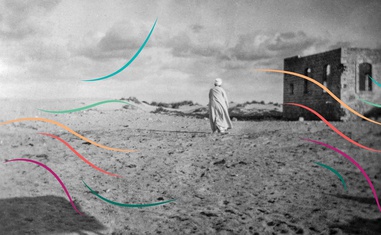


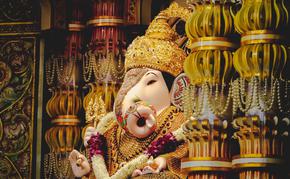
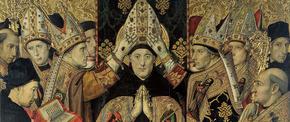










Comments
Sign in or create an account
Continue with Facebookor